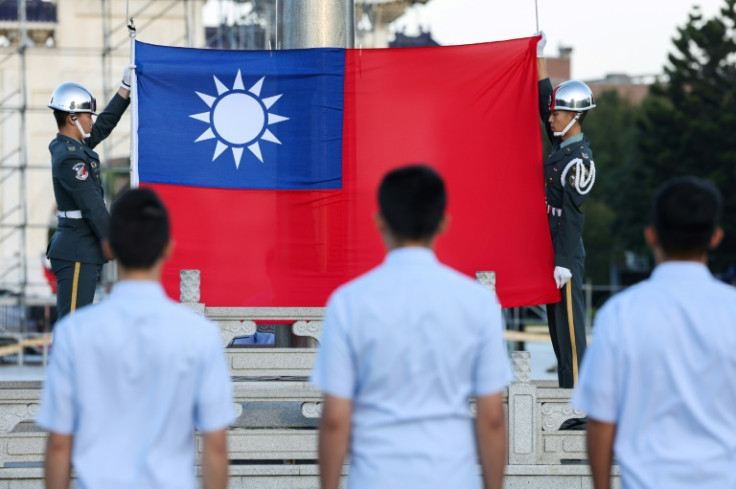Taiwan Says Detects Six Chinese Balloons Near Island

Taiwan detected six Chinese balloons off the island, the defence ministry said Friday, as Beijing maintains military pressure to push its claim of sovereignty.
The six balloons were spotted in the 24 hours to 6:00 am on Friday (2200 GMT Thursday), the ministry said, giving one of its highest daily tallies of the devices.
Along with the balloons, nine Chinese military aircraft, six warships and two official ships were detected near Taiwan over the same period.
The balloons were spotted at an altitude of 16,000 feet to 20,000 feet, and one of them directly flew over the island, according to an illustration released by the defence ministry.
While Taiwan calls itself a sovereign nation, China claims the island and has threatened to use force to bring it under its control.
In recent years, China has ramped up the deployment of fighter jets and warships around the self-ruled island and sought to erase Taiwan from the international stage by poaching its diplomatic allies and blocking it from global forums.
Chinese balloons have been regularly spotted over waters near Taiwan in the past few months, but Friday's figure is one of the highest recorded, according to an AFP tally of the military data.
Last year, Taiwan detected a record of eight Chinese balloons less than a month after the presidential elections won by the ruling Democratic Progressive Party's Lai Ching-te.
Beijing regards Lai as a "separatist" and has staged several rounds of major military exercises since he came to power last May.
Taiwan has described the Chinese balloons as a form of "grey zone" harassment -- a tactic that falls short of an act of war but can exhaust Taipei's armed forces.
Balloons from China became a politically fraught topic in early 2023 when the United States shot down what it called a spy balloon.
The huge balloon, which carried a large payload of electronics, flew over sensitive US military installations and prompted concerns Beijing was scooping up vital intelligence.
Beijing has said it was a civilian airship blown off-course.
While the United States is legally bound to provide arms to Taiwan, Washington has long maintained "strategic ambiguity" when it comes to deploying its military to defend the island from a Chinese attack.
However, US President Donald Trump's transactional style of diplomacy has raised concerns about his willingness to defend the island.
US-Taiwan relations warmed during Trump's first term as he feuded with China on issues like trade and national security.
But Trump rattled nerves during his most recent election campaign by suggesting Taiwan should pay the United States for protection and accusing the island of stealing the US chip industry.
While Taipei has increased spending on its military in recent years, the island of 23 million people still relies heavily on US arms sales as a deterrence against Beijing.
Lai has sought to get on side with the Trump administration and show the island's commitment to investing more in its own defence.
But his government's plan to increase defence spending to a record NT$647 billion ($19.7 billion) in 2025 appears to have been scuttled.
The opposition-controlled parliament last month approved deep cuts to the national budget, including defence.
© Copyright AFP 2025. All rights reserved.





















